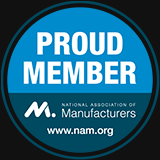 There is enormous latent supply of equipment and machinery in China across a wide range of industries. The amount of arbitrage happening in the China-to-US machinery and equipment space seems almost too significant to not be disintermediated. Why has no one been able to tap into it, especially the marketplace giants, Amazon and Alibaba?
There is enormous latent supply of equipment and machinery in China across a wide range of industries. The amount of arbitrage happening in the China-to-US machinery and equipment space seems almost too significant to not be disintermediated. Why has no one been able to tap into it, especially the marketplace giants, Amazon and Alibaba?
High-Touch or Low-Touch?
One reason is the unique high-touch service needs of equipment and machinery industries. High-touch means that customer service issues are often more complex, but the business involves high value customers. In contrast, most consumer goods follow a low-touch customer model.
From operating call centers trained in technical advice and troubleshooting, to providing adequate after-sales maintenance and repair, the need for high-touch customer service from end to end is unavoidable in the world of big-ticket machinery and equipment purchases. Few Chinese manufacturers can afford to operate a dedicated US-based team to fulfill this for US customers.
If traditional cross-border intermediaries such as trading companies and OEM buyers can fill this need and profit handsomely, why couldn’t a horizontal marketplace platform step in and steal their thunder (along with billions of dollars of profit)?
As Alibaba and Amazon's marketplace platforms have been built out around consumer goods, these incumbent players follow highly entrenched low-touch service models. This because the relatively low value of consumer purchases prevent a high-touch model from ever being profitable. However, conversely, a low-touch model greatly limits these platforms’ ability to accommodate Chinese direct-selling of industrial equipment and machinery the same way they have – to an extent – for Chinese consumer goods.
One Man's "Innovator's Dilemma" is Another's...

It would go against Alibaba or Amazon’s core business models if they were to establish a dedicated after-sales service team to answer customers’ various technical industry-specific questions, much less provide on-site maintenance services. But that is exactly what is needed by Chinese industrial sellers in order to sell to the US.
A platform that provides high-touch English-language service is the very key that will unlock an enormous volume of latent supply. It is a key that may not seem intuitive at first due to the consumer models proven out by the giants, Amazon and Alibaba. But it’s one whose numbers make complete sense if you take a look at the US market from a buyer perspective, in conjunction with understanding the challenges and incentives from a Chinese seller perspective.






